Best English-Speaking Hospitals and Clinics in Tokyo [2024]
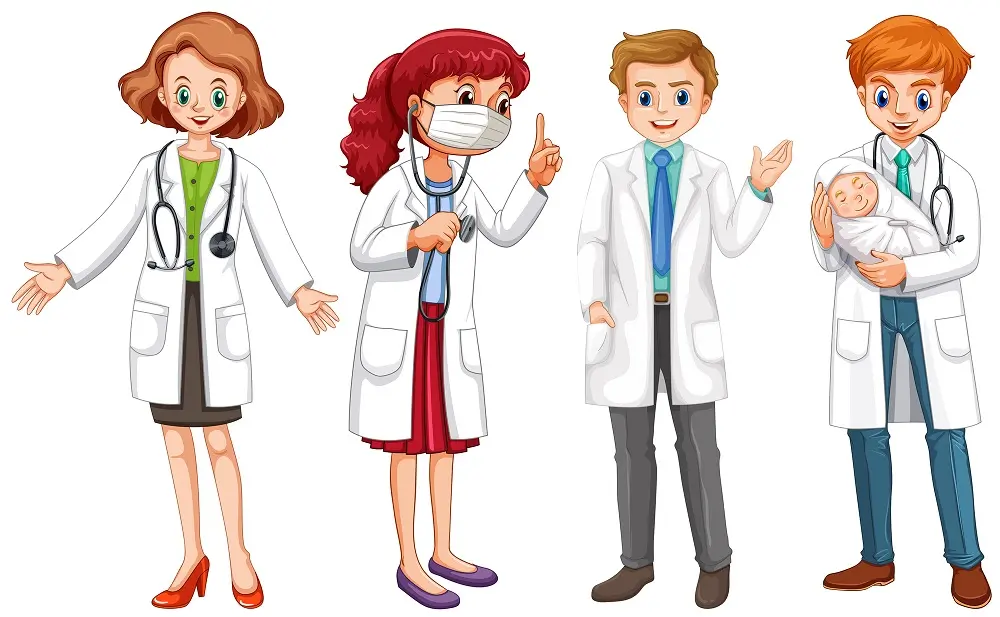
One of the questions every foreigner in Japan has at one time or another is about the English-speaking hospitals and clinics in Tokyo. Well, it’s not that every foreigner in Japan lives in Tokyo. Still, most expats do, so having a list of clinics and hospitals with English-speaking doctors in Tokyo is handy for medical emergencies.
Language plays the most important role when a patient faces a doctor. The doctor needs to know all the possible symptoms, even the most insignificant ones. Simultaneously, the patient must tell the doctor all the details and more, especially in severe health conditions. In Japan, even if you speak Japanese, you will feel much more comfortable talking to your doctor in English to explain the issues properly.
As per Statista, at the end of 2022, there were 629 hospitals in Tokyo out of 8.2 thousand hospitals in Japan. However, very few of those hospitals offer English support.
Therefore, we compiled a list of the best foreigner-friendly English-speaking hospitals and clinics for medical emergencies. Moreover, this guide will also give you tips on getting the desired medical attention if you do not speak Japanese.
Before moving to the list of medical facilities in Tokyo that support international patients, let’s find out how to differentiate a hospital that can support English-speaking expats and visitors in Tokyo and all over Japan.
How to Find an English-speaking Hospital in Japan
Japan’s medical system makes it relatively easy to know which hospital can support English and possibly other languages. Moreover, it’s not just about the language; such hospitals should have a support system to handle expats with a fair cultural and sometimes religious understanding of their international patients.
The hospitals supporting the above must apply for either JMIP or JIH certifications. Upon a thorough evaluation, a hospital gets JMIP or JIF accreditation.
If you know the name of the hospital around you, or you find it through people you know or by searching on the internet, check the following:
- Whether their website mentions JMIP or JIH Accreditation – You got what you wanted if it does.
- Do they have an English website? If yes, you can likely get the desired English support even if the hospital does not have JMIP or JIH accreditation.
Please note that JMIP and JIH accreditations are only for hospitals. If you are searching for a Tokyo-based English-speaking clinic, the first thing to check is whether the clinic’s website has an English version. However, please do not stop at the website alone; call the clinic to check if they can support the English language.
What is JMIP?
JMIP stands for “Japan Medical Service Accreditation for International Patients.” JMIP certification was an initiative of the Japanese Ministry of Health, Labor, and Welfare (MHLW). This MHLW initiative provided hospitals with the resources to serve international patients efficiently, including English at the least.
The Japan Medical Education Foundation evaluates a Japanese hospital that meets the JMIP criteria and is accredited with the JMIP certification. You can search for JMIP-certified hospitals for the relevant medical conditions in every prefecture of Japan here.
JMIP Accredited Foreigner-Friendly Hospitals in Tokyo
As of January 2024, there are 19 JMIP-accredited hospitals in Tokyo. The list of these hospitals is as follows:
| Name of the Hospital | Address | Phone No. |
|---|---|---|
| Nissan Tamagawa Hospital | 4-8-1 Seta, Setagaya-ku | 03-3700-1151 |
| NTT Medical Center, Tokyo | 5-9-22 Higashigotanda, Shinagawa-ku | 03-3448-6111 |
| Tokyo Metropolitan Bokutoh Hospital | 4-23-15 Kotobashi, Sumida-ku | 03-3633-6151 |
| Toho University Medical Center Omori Hospital | 6-11-1 Omori Nishi, Ota-ku | 03-3762-4151 |
| National Center for Neurology and Psychiatry Hospital | 4-1-1 Ogawa Higashimachi, Kodaira City | 042-341-2711 |
| Tokyo Metropolitan Tama General Medical Center | 2-8-29 Musashidai, Fuchu City | 042-323-5111 |
| Tokyo Metropolitan Children’s Medical Center | 2-8-29 Musashi, Fuchu City | 042-300-5111 |
| Tokyo Metropolitan Cancer and Infectious Diseases Center, Komagome | 3-18-22 Honkomagome, Bunkyo-ku | 03-3823-2101 |
| National Center for Global Health and Medicine Hospital | 1-21-1 Toyama, Shinjuku-ku | 03-3202-7181 |
| Tokyo Nishi Tokushukai Hospital | 3-1-1 Matsubaracho, Akishima City | 042-500-4433 |
| Kosei Hospital | 2-25-1 Wada, Suginami-ku | 03-3383-1281 |
| Tokyo Metropolitan Hiroo Hospital | 2-34-10 Ebisu, Shibuya-ku | 03-3444-1181 |
| Tokyo Saiseikai Central Hospital | 1-4-7 Mita, Minato-ku | 03-3451-8211 |
| Toranomon Hospital | 2-2-2 Toranomon, Minato-ku | 03-3588-1111 |
| Musashino Tokushukai Hospital | 3-5-48 Mukodaicho, Nishitokyo City | 042-465-0700 |
| Tokyo Metropolitan Otsuka Hospital | 2-8-1 Minamiotsuka, Toshima-ku | 03-3941-3211 |
| Kumegawa Hospital | 4-7-14 Honmachi, Higashimurayama City | 042-392-3228 |
| Tokyo Rinkai Hospital | 1-4-2 Rinkai-Cho, Edogawa-Ku, Tokyo 134-0086 | 03-5605-8811 |
| Iwai Orthopedic Medical Hospital | 8-17-2 Minamikoiwa, Edogawa-ku, Tokyo 133-0056 | 03-5694-6211 |
Please note that Tokyo Rinkai and Iwai Orthopedic hospitals do not appear in the search results on the JMIP website. However, these two hospitals are mentioned in the news as JMIP-certified here.
What is JIH?
JIH stands for “Japan International Hospitals.” This initiative was launched by the MIJ (Medical Excellence JAPAN) association, which focuses on the globalization of Japan’s medical services. MIJ grants JIH certification to a hospital that is evaluated as capable of serving international patients.
As of January 2024, there are 13 JIH-accredited hospitals in the 23 wards of Tokyo. Moreover, overall, 19 such hospitals are in the Tokyo Metropolitan area, including 3 in Chiba, 2 in Kanagawa, and 1 in Saitama. You can find these hospitals here.
List of English-speaking Hospitals and Clinics in Tokyo
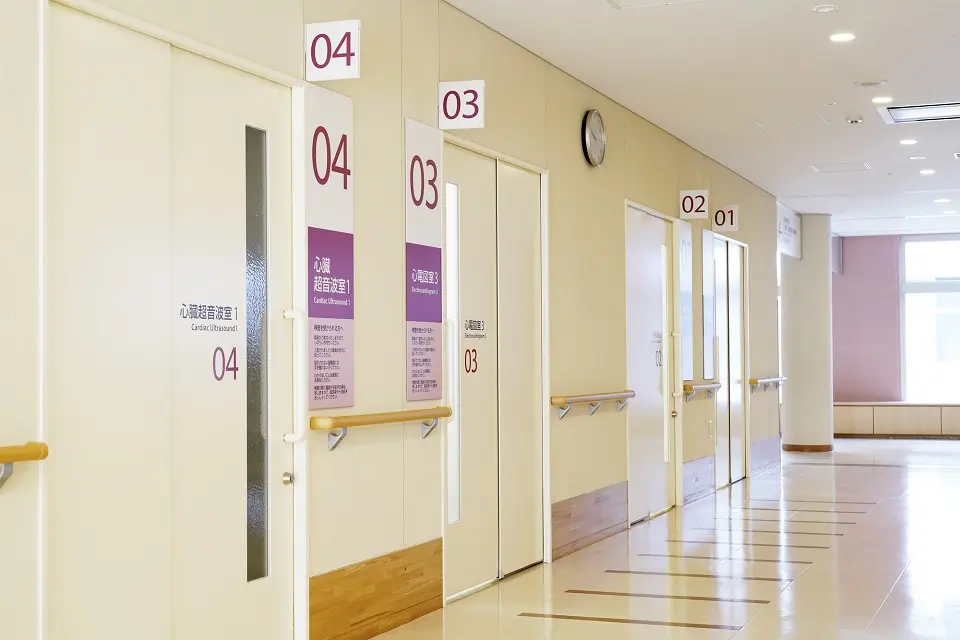
Apart from the JMIP and JIH-certified hospitals, several other medical centers and clinics offer English-speaking facilities. Following is a list of the best Eglish-speaking hospitals and clinics in Tokyo to help you in medical emergencies:
St. Luke’s International Hospital, Chuo-ku
- Address: 9-1 Akashi-cho, Chuo-ku, Tokyo 104-8560, Japan
- Phone Number: +81-3-3541-5151 (international) / 03-3541-5151 (domestic)
- Website: https://hospital.luke.ac.jp/eng/
- Access: Direction map
St. Luke’s International Hospital is a general hospital founded in 1901 and located in the Chuo Ward of Tokyo. This international hospital serves patients for primary emergency care, terminal illnesses (palliative care), and outpatient services without hospitalization. This is a good choice if you are looking for an English-speaking hospital in Tokyo with good medical facilities.
They accept patients with or without Japanese health insurance. However, if you do not have Japanese health insurance, you will have to make full payment for the medical services.
Some of the important points about St. Luke’s International Hospital’s various services are as follows:
- Primary care: You can visit General Internal Medicine without the need for an appointment from 8:30 AM to 11:00 AM on weekdays
- Specialty-based Medical Issues: Prior appointment is needed with a referral letter from a general doctor whom you saw at an outside medical facility
- Emergency Care: St. Luke’s International Hospital is the Tokyo Metropolitan Government’s registered Emergency Care Center. You can visit the hospital without needing an appointment 24 hours a day, on any day.
- Pediatric Care: For pediatric care, you can visit the hospital without an appointment from Monday to Friday from 8:30 to 11:00 AM or 6:45 to 9:45 PM.
You can reach St. Luke’s International Hospital by a 7-minute walk from Hibiya line’s Tsukiji Station’s exit numbers 3a, 3b, or 4. Alternatively, you can also go there, taking an 8-minute walk from Shintomicho Station on the Yurakucho line (exit number 6).
Sanno Hospital and Sanno Medical Center, Minato-ku
- Hospital Address: 8-10-16 Akasaka, Minato-ku, Tokyo, Japan 107-0052
- Medical Center Address: 8-5-35 Akasaka, Minato-ku, Tokyo, Japan 107-0052
- Phone: Hospital +81-3-3402-3151 (03-3402-3151)/ Medical Center: +81-3-3402-5581 (3-3402-5581)
- Website: https://www.sannoclc.or.jp/hospital/english/
Access: Sanno Hospital – Map / Sanno Medical Center – Map
Both Sanno Hospital and Sanno Medical Center are centrally located in Tokyo’s Minato Ward’s Akasaka area. Most of the doctors at both these hospitals speak English. However, the hospital also provides interpretation facilities in case the doctor is not bilingual.
Sanno Hospital and Sanno Medical Center accept patients without Japanese health insurance. However, in such cases, you must pay the full charges for the medical services.
While these institutions provide medical services for outpatients and hospitalization for most medical needs, they have all the facilities for the patients’ comfort. The facilities include a wide choice of hotel-type private rooms for hospitalization, a luxurious restaurant, and a rooftop garden. The catch here is that all their hospital rooms are private and can prove to be expensive.
Their outpatient reception hours are 8:30 to 11:30 AM and 1:00 to 4:30 PM in the afternoons, except on Sundays and Japanese national holidays.
Sanno Hospital and Medical Center’s medical facilities include internal medicine, orthopedics, childbirth, pediatrics, ENT, dentistry, eye center, cancer, urology, neurosurgery, and many others.
They have 8 medical facilities at 6 locations in Akasaka, including Sanno Hospital, Sanno Birth Center, Sanno Medical Center, and Akasaka Sanno Medical Center. You can find the details of all these facilities on their website mentioned above. All these facilities are within walking distance from Tokyo Metro Ginza Line’s Aoyama-Itchome station or the Chiyoda Line’s Nogizaka Station.
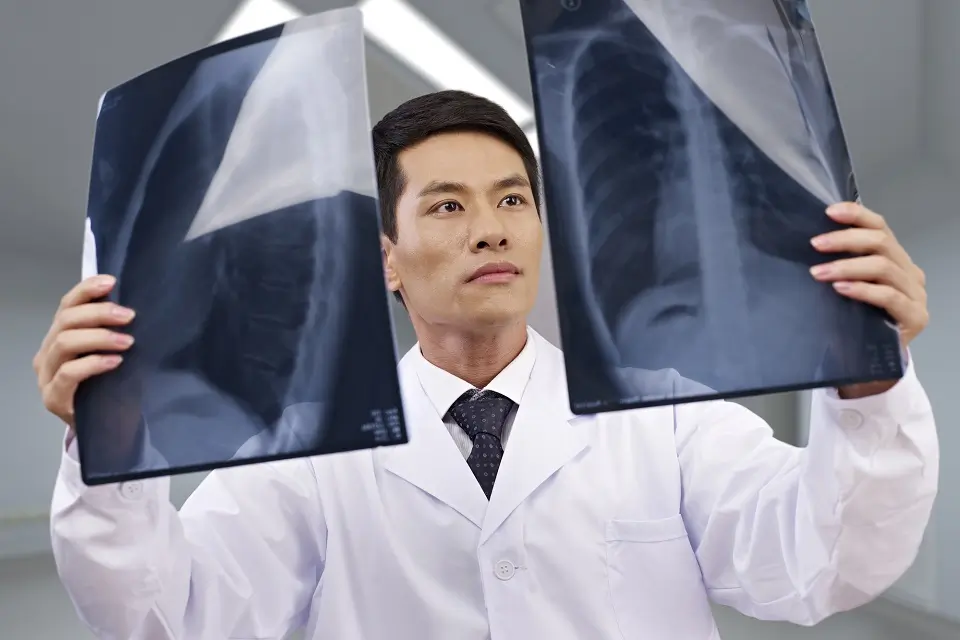
Tokyo Saiseikai Central Hospital, Minato-ku
- Address: 1 Chome-4-17 Mita, Minato City, Tokyo 108-0073
- Phone Number: +81-3-3451-8211 (international) / 03-3451-8211 (domestic)
- Website: https://www.saichu.jp/english/home/
- Access: Direction map
Established in 1911, Tokyo Saiseikai Central Hospital is a JMIP-accredited English-speaking hospital located in the Mita area of Tokyo’s Minato ward.
Tokyo Saiseikai Central Hospital provides medical services for all health issues, including dentistry and psychiatry, and accepts inpatients and outpatients with English support. Apart from English, they also have a website in Chinese.
Tokyo Saiseikai Central Hospital’s long history has equipped it with the latest medical technologies and many of the best doctors.
They accept outpatients with appointments from 8:00 AM onwards Monday through Saturday, except 2nd and 4th Saturdays and Japanese national holidays. If you do not have an appointment, you can visit them between 8:00 AM and 11:30 AM on the above-mentioned days.
Tokyo Saiseikai Central Hospital is open 24 hours a day, 365 days a year, for medical emergency services. However, in case of emergency services, you must call them before visiting the hospital. Please note that if you are going to the hospital by ambulance, the ambulance calls the hospital on your behalf.
Apart from its central location, Tokyo Saiseikai Central Hospital is within walking distance from 3 stations of the Tokyo Metro. These are as follows:
- Akabanebashi Station (Akabanebashi Exit) on the Toei Oedo Line
- Shibakoen Station (Exit A-2) on the Toei Mita Line
- Azabu Juban Station (Exit 3) on the Tokyo Metro Namboku Line
However, please note that while it’s just a 3-minute walk from the Akabanebashi Station, it takes 10 minutes from the latter two stations.
JCHO Tokyo Takanawa Hospital, Minato-ku
- Address: 3-10-11 Takanawa, Minato-ku, Tokyo 108-8606
- Phone Number: +81-3-3443-9191 (international) / 03-3443-9191 (domestic)
- Website: https://takanawa.jcho.go.jp/en_info/
- Access: Direction map
Located centrally in Tokyo’s Minato ward, JCHO Tokyo Takanawa Hospital is a medium-sized hospital you can visit if you speak English instead of Japanese. This hospital also supports Russian and Chinese-speaking patients.
Like other general hospitals, Tokyo Takanawa Hospital has consultation and treatment facilities for various medical conditions. In addition to internal medicine and surgery, its medical services include ophthalmology, orthopedics, dentistry, ENT, urology, dermatology, neurosurgery, and pediatrics.
The hospital’s operating hours for international services are from 09:00 AM to 3:45 PM on Mondays to Fridays. Please note that during these operating hours, the consulting hours for most common medical conditions are from 9:00 AM to 11:30 AM.
However, Tokyo Takanawa Hospital, designated as a secondary emergency medical care facility, is open for emergency cases from 5:30 p.m. to 8:00 a.m. on weekdays. Their emergency services are also available 24 hours a day on Saturdays, Sundays, and Japanese national holidays.
As an outpatient, you can visit JCHO Tokyo Takanawa Hospital without a prior appointment between 8:00 AM and 11:30 AM.
For hospitalization (inpatient services), they have private rooms and shared rooms with either 2 or 4 beds. They also have special private rooms with hotel-like facilities.
Reaching JCHO Tokyo Takanawa Hospital is quite convenient if you are using the Toei Asakusa Line, as from Takanawadai Station, it is just a 3-minute short walk. However, if you use the JR Yamanote line, Keihin Tohoku line, or Keikyu line, it is a 10-minute walk from the Takanawa exit of the Shinagawa Station.
NTT Medical Center Tokyo, Shinagawa-ku
- Address: 5-9-22 Higashi-Gotanda, Shinagawa-ku, Tokyo 141-8625, Japan
- Phone Number: Main Number: +81(0)3-3448-6111, For International patients: +81(0)3-6721-6239
- Website: https://www.nmct.ntt-east.co.jp/en/
- Access: Direction map
NTT Medical Center Hospital in Tokyo is another JMIP-accredited general hospital that welcomes English-speaking international patients who can not speak Japanese. This is one of the hospitals where all doctors speak English, and you do not have to depend on their interpreters.
This hospital is within walking distance from Gotanda station in the Shinagawa ward of Tokyo.
NTT Medical Center Hospital was established in 1952 by Nippon Telegraph and Telephone Public Corporation as a medical facility for its employees and their families. However, in 1986, it was opened to the general public.
Maintained and run by NTT East Corporation, NTT Medical Center offers medical services for almost all medical conditions and has departments for Internal medicine, palliative care, surgery, urology, orthopedics, neurosurgery, dentistry & oral surgery, gynecology, obstetrics, among others.
Their reception Hours are from 8:30 AM to 11:00 AM and then 1:00 PM to 3:00 PM, every day except Saturdays, Sundays, National Holidays, Substitute Holidays, and the year-end and New Year holidays. However, the emergency center is open 24 hours a day, 365 days a year.
NTT Medical Center also accepts international health insurance; however, it is recommended to call them and check about the health insurance you are subscribed to. Patients who do not have Japanese health insurance must pay the total cost of treatment and then claim from their insurance providers. If you do not have health insurance, you will have to bear all the treatment costs.
Depending on whether you take the Toei Subway Asakusa Line, JR, or Ikegami Line, you can reach NTT Medical Center by walking 5 to 7 minutes from Gotanda station.
American Clinic Tokyo, Minato-ku
- Address: 3F No.1 Niikura Bldg. 1-7-4 Akasaka, Minato-ku, Tokyo, JAPAN 107-0052
- Phone Number: +81(0)3-6441-0969
- Website: https://www.americanclinictokyo.com/
- Access: Direction map
American Clinic Tokyo was established in 1954 to serve English-speaking international patients. Please note that it is not a general hospital but only a clinic that provides primary care and psychiatry.
Another important point to note is that this clinic does not welcome health insurance, and you will have to pay for your medical treatment in full.
They only accept patients by prior appointments and accept appointment requests by email at info@americanclinictokyo.com.
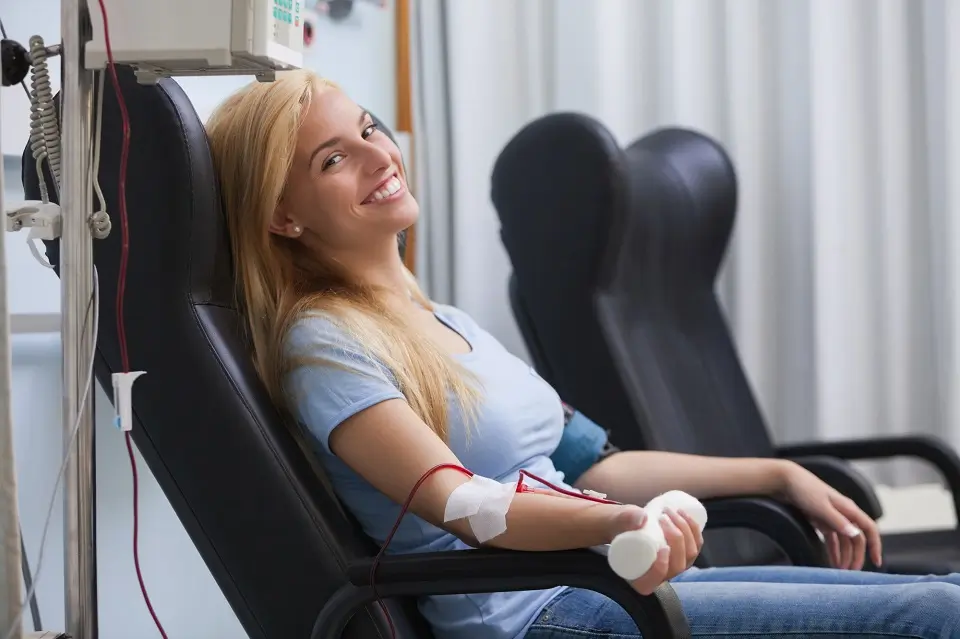
Tokyo Midtown Clinic, Minato-ku
- Address: Midtown Tower 6F, Akasaka 9-7-1, Minato-ku, Tokyo
- Phone Number: +81(0)3-5413-0080
- Website: https://www.tokyomidtown-mc.jp/en/
- Access: Direction map
The Roppongi area is one of those areas of Tokyo where finding English-speaking facilities is much more common than in many other places. Thanks to the expat communities, embassies, and foreigners frequenting this area. Therefore, it’s no surprise that you will find good medical facilities offering medical services for English-speaking foreigners.
Tokyo Midtown Clinic is a great medical clinic where you can get medical attention and treatment without worrying that you can only communicate in English.
This clinic offers outpatient medical facilities for internal medicine, dentistry, gynecology, neurology, diabetes, orthopedics, rheumatology, and neurosurgery. In addition to these outpatient services, Tokyo Midtown clinics also offer health checks, vaccinations, and travel medicine.
Please note that you can only visit this clinic with a prior appointment. For all outpatient inquiries, you can call them between 9:00 AM and 12:30 PM and then 2:00 PM and 5:30 PM on weekdays.
Tokyo Medical & Surgical Clinic, Minato-ku
- Address: 32 Shiba koen Building 2F, 3-4-30 Shiba-koen, Minato-ku, Tokyo
- Phone Number: +81(0)3-3436-3028
- Website: https://tmsc.jp/
- Access: Direction map
Located in Shiba-koen of the central Minato ward of Tokyo, Tokyo Medical & Surgical Clinic is a good place if you are looking for an English-speaking clinic with doctors with international exposure because of their training in the US and Europe.
The name of Tokyo Medical & Surgical Clinic may be slightly confusing, as they only offer minor surgeries and procedures and not any major surgeries. The clinic offers medical services for pediatrics, physical examinations & health checkups, travel health services, gynecology, sexually transmitted infections, mental health, and also vaccinations.
This clinic is especially helpful in cases of serious illness, as you can visit without the need for an appointment. However, they accept patients with prior appointments in all other cases.
Their regular operating hours are 8:30 AM to 5:30 PM on weekdays and 8:30 AM to 12:00 noon on Saturdays. However, they also offer consultation at extra cost from 5.30 PM to 9.00 PM from Monday to Friday and 12.00 noon to 9.00 PM on Saturdays. During these off-hours, you can also request a video call consultation by placing your request on telephone number 050-5530-9997
The catch is that Tokyo Medical & Surgical Clinic does not accept insurance, so you must pay the full treatment cost. However, you can get receipts for your treatment from your international insurance company to claim it. Please note that if you have Japanese National Health insurance, you cannot get reimbursed if the same treatment is possible at any other hospital or clinic.
International Health Care Clinic, Minato-ku
- Address: Sueyoshi Bldg. 3F, 2-10-5 Shimbashi, Minato-ku, Tokyo, 105-0004, Japan
- Phone Number: +81(0)3-3501-1330
- Website: https://www.ihc-clinic.jp/en/
- Access: Direction map
International Health Care Clinic welcomes English-speaking international patients who can’t speak Japanese.
Please note that though this is a small clinic focusing only on general medicines and not hospitalization or emergency services, they need a mention because they specialize in international medical transportation, which is available 24 hours, 7 days a week.
International Health Care Clinic’s medical transportation services are useful for international patients who wish to get treatment in their home country or any other country. The clinic’s English-speaking staff arranges the travel in such cases, and their English-speaking staff escorts the patient for the travel with the required medical equipment.
The International Health Care Clinic is centrally located in Shimbashi of Tokyo’s Minato wards, and it is a 4-minute walk from Shimbashi Station or a 5-minute walk from Uchisaiwaicho Station.
National Medical Clinic. Minato-ku
- Address: #202 5-16-11 Minami Azabu, Minato-ku, Tokyo 〒106-0047
- Phone Number: +81(0)3-3473-2057
- Website: https://www.nmclinic.net/
- Access: Direction map
Established in 1988, The National Medical Clinic in Tokyo’s Minato ward offers English-speaking pediatric and family healthcare services. This is a good place to turn to for medical care for small kids.
This clinic’s medical services include Primary Care, Preventive Care, Chronic Conditions, Women’s Health, Men’s Health, Sexual Health, and immunization (vaccination).
At the National Medical Clinic, you can also get medical help from Pulmonologists, Psychiatrists, and Infectious Disease specialists on request. Moreover, they also offer Anesthetic Cosmetic Plastic Surgery.
This clinic is well equipped with X-ray machines, electrocardiograms, ultrasound machines, audiometry, and tympanometry. It also has a laboratory for various medical tests.
They do not accept Japanese Health Insurance; however, they help the patients with required insurance forms for their international health insurance claims.
Please note that being a clinic, they do not have inpatient services for hospitalization and also do not offer emergency medical services.
You can reach the National Medical Clinic by a 10-minute walk from the Hiroo station in Tokyo. However, please make sure to make an appointment before your visit.
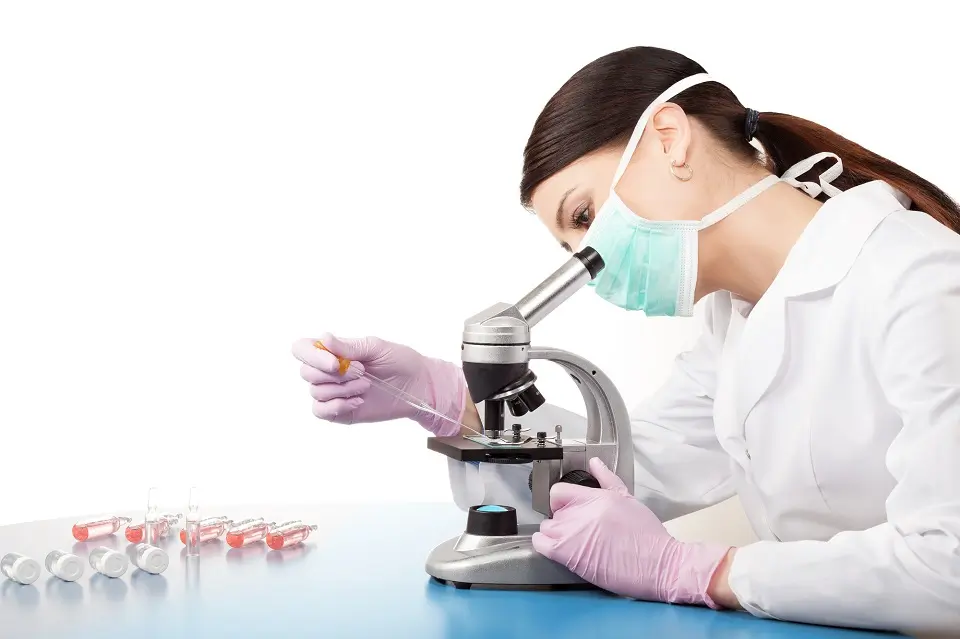
Jingumae Ear, Nose & Throat Specialist, Shibuya
- Address: 6-1-5 Jingumae, Shibuya, Tokyo 150-0001
- Phone Number: +81(0)3-3400-3022
- Website: https://www.jm-c.com/JMC-2.htm
- Access: Direction map
As the name suggests, Jingumae Ear, Nose & Throat Specialist is an ENT clinic in Shibuya. This small clinic supports English-speaking patients with ear, nose, and throat medical issues.
As a small clinic, it offers only outpatient medical services, including day surgery for small tumors, nasal polyps, and myringoplasty for chronic otitis (small perforation).
You can visit the Jingumae ENT Specialist clinic without an appointment from Monday through Saturday; however, on Wednesdays, they have special consultations only by prior appointments.
This clinic is conveniently located 6 to 7 minutes’ walk from Harajuku Station and 7 to 8 minutes’ walk from Omotesando Station.
Dr. Suwa Michiko Pediatric Clinic, Shibuya
- Address: #103, Royal Palace Hiro, 5-16-4, Hiroo, Shibuya-ku, Tokyo, 150-0012
- Phone Number: +81(0)3-3444-7070
- Website: http://www.suwa-pediatrics.com/english/
- Access: Direction map
Dr. Suwa Michiko Pediatric Clinic, also known as Medical Clinic Hiroo, is an English-speaking clinic located in Hiroo, in the Shibuya ward of Tokyo. It is a 7-minute walk from Hiroo station’s exit #2.
This clinic specializes in pediatrics but also offers internal medicine and dermatology treatments. It can help you obtain imported vaccinations.
The clinic mainly accepts patients with prior appointments, and you can call them for the same as per the following times:
- Monday, Tuesday: Between 9:00 AM to 12:00 Noon
- Thursday & Friday: Between 2:00 PM to -5:30 PM
- Wednesday & Saturday: Between 9:00 AM to 11:30 AM
Like a regular clinic, it accepts Japanese health insurance; however, if you have international health insurance, it will help you with the required paperwork to make your insurance claims.
The clinic’s director, Dr. Suwa, is also certified by the American Board of Pediatrics and a Fellow of the American Academy of Pediatrics. They have many foreign outpatients.
Dr. Suwa Michiko Pediatric Clinic’s main telephone number, 03-3444-7070, accepts calls and inquiries in English.
Hiroo International Clinic, Minato-ku
- Address: Precious18 BLDG 7F, 4-14-6 Minami-Azabu Minato-ku, Tokyo 106-0047
- Phone Number: +81(0)3-5789-8861
- Website: http://www.hiroo-ic.com/
- Access: Direction map
Hiroo International Clinic specializes in Internal Medicine and General Practice.
The name Hiroo International Clinic can be confusing because it gives the impression that it is in the Hiroo area. However, this clinic is located in Minami-Azabu of the Minato ward of Tokyo. On the other hand, the word “international” correctly describes the clinic.
Hiroo International Clinic mainly serves foreigners living in or visiting Japan. In addition to English-speaking doctors, other staff members, such as nurses and reception staff, speak English.
This clinic normally accepts patients with prior appointments; however, in emergencies, they try to accommodate outpatients without appointments. In medical emergencies, you can also request a visit during off-hours and on Sundays.
They also have an in-house pharmacy to serve only English-speaking patients better, which saves you the trouble of struggling with the language at a normal Japanese pharmacy.
Hiroo International Clinic is well equipped with X-ray & digital imagining equipment and a laboratory for various medical tests like blood, urine, and infectious diseases, including HIV, cervical cancer, etc.
As many patients are foreigners visiting Japan and do not have Japanese health insurance, this clinic helps you complete the documentation required for your international medical insurance without any extra cost.
Kijima Pediatric & Otorhinolaryngology Clinic, Shibuya-ku
- Address: 2-21-10, Tomigaya Shibuya-ku, Tokyo
- Phone Number: +81(0)3-3467-6740
- Website: https://kijimaclinic.com/e_index.html
- Access: Direction map
Located in Tomigaya of the Shibuya ward in Tokyo, Kijima Pediatric & Otorhinolaryngology Clinic is also known as Kijima E.N.T. & Pediatric Clinic. It is another English-speaking clinic in Tokyo that offers medical consultations, checkups, and treatments for pediatric and ENT (Ear, nose, and throat) diseases.
Under pediatric internal medicines, apart from general pediatric diseases, Kijima E.N.T. & Pediatric Clinic treats infectious diseases, allergies, etc.
They also provide medical services for periodic, regular examinations of infants and arteriosclerosis measurement to treat damaged blood vessels that carry oxygen away from the heart’s arteries.
Kijima Clinic also has a laboratory equipped for electrocardiographs, blood tests, chest X-rays, ultrasonography, adenovirus tests, and streptococcal tests.
This clinic is closed on Thursdays and Sundays, except on national holidays. On other days of the week, the Kijima clinic is open from 9:00 AM to 12:30 PM and 3:50 PM to 7:00 PM, except on Saturdays, when it is open only from 9:00 AM to 12:30 PM.
You can reach Kijima clinic by a 10-minute walk in the direction of Daikanyama on Yamate Dori from Yoyogi-Hachiman Station on the Odakyu line.
Personal Health Clinic (for STD), Bunkyo-ku
- Address: 3-39-3 UENO-FUJI BLDG. 6F, Yushima, Bunkyo Ku, Tokyo, 113-0034
- Phone Number: +81(0)3-5817-4415
- Website: https://ph-clinic.org/en
- Access: Direction map
The Personal Health Clinic in Ueno specializes in STDs (sexually transmitted diseases) and serves foreigners with English-speaking doctors and other staff members. Apart from STDs, this clinic also offers services for pregnancy tests.
Apart from English support, they also have agreements with interpretation agencies to arrange telephone interpretation for Korean, Chinese, German, Spanish, Portuguese, French, Russian, etc., in case you prefer to explain in your mother tongue.
To respect the privacy of the visiting patients, the clinic provides semi-cubicles while the patients wait to see the doctor or get a prescription. However, to have such privacy, it is better to visit with a prior appointment, though they also accept patients without appointments.
Personal Health Clinic is in Bunkyo Ward of Tokyo and is at walking distance from the following stations:
- Ueno-okachimachi (closest to the clinic)
- Ueno
- Ueno-hirokoji
- Okachimachi
- Yushima
Please note that the clinic does not support health insurance, so you will have to make full payment for consultation and treatments. However, they will help you with any required documentation for international insurance.
Japanese Red Cross Medical Center (Nisseki Medical Center), Shibuya
- Address: 4 Chome-1-22 Hiroo, Shibuya City, Tokyo 150-8935
- Phone Number: +81(0)3-3400-1311
- Website: https://www.med.jrc.or.jp/en/tabid/393/Default.aspx
- Access: Direction map
Founded in 1877, the Japanese Red Cross Medical Center, or the Nisseki Medical Center in the Shibuya ward of Tokyo, is a full-fledged hospital with outpatients and inpatient services. Apart from internal medicines, surgeries, orthopedics, pediatrics, and other medical consultations and treatments, the hospital even has psychiatry, dentistry, and oral surgery.
The Japanese Red Cross Medical Center offers private and shared rooms for hospitalization.
The hospital accepts Japanese health insurance and helps provide any required English documentation if the insurance provider is from abroad. However, all such documentation comes with additional charges.
Please note that as this hospital is not mainly for foreigners, not all the doctors speak English. However, you can find the daily conversational level of English support.
If you are not transported by an ambulance, you can visit them on weekdays from 5:00 PM to 8:10 AM for medical emergencies. However, if a patient comes by ambulance, they accept patients 24 hours a day. The hospital also accepts emergency cases 24 hours a day on weekends and holidays, even without an ambulance.
To reach the Japanese Red Cross Medical Center on foot, the closest station is Hiroo station, which is a 15-minute walk away. However, you can also take busses to the hospital from JR Shibuya station (east exit) or JR Ebisu station (west exit),
Daimon Medical Clinic, Minato-ku
- Address: SVAX II Bldg. 5F, 2-1-16 Hamamatsucho, Minato-ku, Tokyo 105-0013
- Phone Number: +81(0)3-6435-6056
- Website: https://daimonclinic.jp/en/
- Access: Direction map
Daimon Medical Clinic is an English-speaking clinic located in Hamamatsu-cho of the Minato ward of Tokyo.
This clinic specializes in general medical practices, such as allergies, colds and flu, asthma, diabetes, shoulder and hip pain, women’s and men’s health, vaccinations, etc. In addition to these general practices, they also offer dermatology and beauty-related treatments.
Please note that this clinic does not offer any emergency medical services.
You can reach Daimon Medical Clinic by walking for one minute from the Daimon station on the Asakusa and Oedo lines or from JR Hamamatsucho station.
Roppongi Hills Clinic, Minato-ku
- Address: Roppongi Hills Mori Tower 6th floor, 6-10-1 Roppongi, Minato-ku, Tokyo 106-6106
- Phone Number: +81(0)3-3796-0066
- Website: http://www.66clinic.com/en/
- Access: Direction map
Roppongi Hills Clinic is located in the iconic Roppongi Hills Mori Tower building in the Roppongi district of Tokyo’s Minato ward. Considering the concentration of foreigners in the Roppongi area, this clinic supports English-speaking foreigners. However, please note that bilingual interpreters provide English support. So, please do not expect all doctors and hospital staff to be fluent in English.
The Roppongi Hills Clinic provides consultation and treatment services for internal medicine, cardiology, pulmonology, urology, gastroenterology, neurology, diabetes, orthopedics, gynecology, dermatology, and related medical issues. The clinic also offers services for psychiatry, health checkups, and vaccinations.
Unless they exclusively mention the need for an appointment for some particular medical conditions, you can just walk in without a prior appointment.
An important point to note is that though the Roppongi Hills clinic has no age restrictions for cases related to Ophthalmology, Otorhinolaryngology, Dermatology, and Orthopedics, it does not accept patients under 15 for internal medicine.
If you hold Japanese health insurance, you will get the insurance benefits at this clinic; however, if you do not have Japanese health insurance, you will have to pay the full amount for the medical consultation or treatment and then claim it to your insurance provider.
The Roppongi Hills Clinic is conveniently located at a walkable distance from the Roppongi station. You can reach it by 4-minute walk from exit 1C if you reach Roppongi by Hibiya line, but if you use the Oedo line, it will take you 7 7-minute walk from exit #3 to reach there.
Roppongi Clinic (Mental Health, Psychiatry, Psychological Therapy), Minato-ku
- Address: 5F Rokuwa Building, 5-1-4 Roppongi, Minato-ku, Tokyo 106-0032
- Phone Number: +81(0)3-6262-3459
- Website: https://www.roppongi-clinic.jp/english-page/
- Access: Direction map
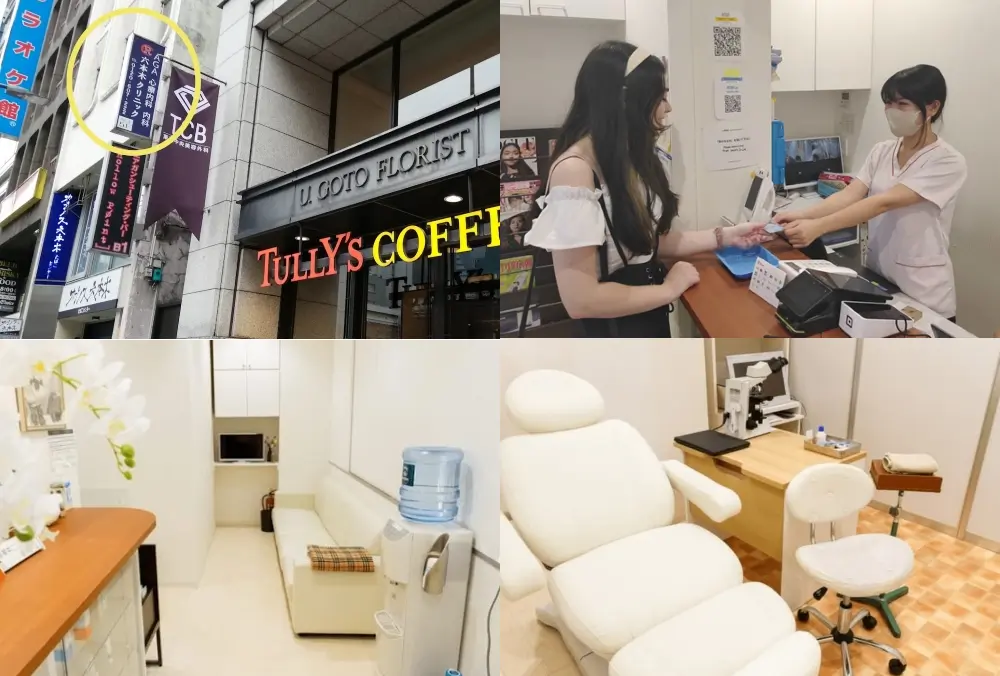
Roppongi Clinic opened in 2019 and has since helped many people in the international community. The clinic has several psychiatrists and psychologists who speak English and Korean and extensive English support and interpretation services.
Roppongi Clinic aims to provide patient-centered medical care with an emphasis on professionalism, accessibility, and kindness. Doctors most commonly treat depression, anxiety, stress, adjustment disorders, burnout, sleeping disorders, alcohol-use disorders, and PTSD. The clinic also offers ADHD and Autism testing, diagnosis, and treatments.
Doctors will provide an individualized treatment plan for patients over 15 years old. It is often a combination of medication (psychiatric drugs and/or herbal medicines, depending on your situation) and psychotherapy/counseling. Their multilingual psychologists can help you identify and adjust thoughts and behaviors to aid in recovery and return to normal work and social life.
Roppongi Clinic is open 7 days a week and on most national holidays. They are located 1 minute from Roppongi Station.
All Japanese health insurance plans are accepted. Doctors can provide a medical certificate (Shindansho) for leave from work or school.
Walk-in appointments are available, but bookings are preferred. Same-day bookings (online and in person) are also possible depending on availability.
Bluff Clinic, Yokohama, Yokohama
- Address: 82 Yamatecho, Naka Ward, Yokohama, Kanagawa 231-0862
- Phone Number: +81(45)-641-6961
- Website: https://bluffclinic.com/
- Access: Direction map
Though not located in the 23 wards of Tokyo, Buff Clinic in Yokohama deserves a mention here because it focuses on providing medical services to English-speaking foreigners. Yokohama is also in the Tokyo Metropolitan area.
Established in 1863, this clinic has a long and rich history. However, it mainly offers general medical practices for pediatrics, adult healthcare, and gynecology. In addition to general medical consultations, it offers dentistry, immunization, and physical therapy services.
Bluff Clinic accepts Japanese Health insurance and can also help you with the required documentation to make insurance claims to your insurance provider abroad.
To reach the clinic by train, go to Motomachi China Town Station (exit 6) or JR Ishikawacho Station (south exit).
The University of Tokyo Hospital, Bunkyo-ku
- Address: 7-3-1 Hongo, Bunkyo-ku, Tokyo 113-8655
- Phone Number: +81(0)3-3815-5411
- Website: https://www.h.u-tokyo.ac.jp/english/international-patients/
- Access: Direction map
You would not expect anything less than a state-of-the-art, full-fledged medical facility from the hospital of the #1 university in Japan. Yes, that is exactly what the University of Tokyo Hospital is.
The Tokyo University Hospital offers medical services across all medical fields. They have emergency care for outpatients as well as various surgeries and hospitalization for acute illnesses and accidents.
This hospital welcomes patients who do not speak Japanese with English support. Most of the doctors at the University of Tokyo Hospital speak English. However, in cases where the English fluency is not to the desired level, the hospital provides Japanese and English bilingual interpretation support at an additional cost.
Patients needing hospitalization can choose private rooms with various options and 2-bed and 4-bed shared rooms. However, please note that the section of the hospital’s English website for international patients only mentions and describes private rooms, which is a more convenient option for patients who can’t speak Japanese, as well as the hospital’s ability to provide English-focused support.
Unlike any regular Japanese hospital, the University of Tokyo Hospital accepts Japanese health insurance. For international patients who do not have Japanese health insurance, medical treatment is charged at full cost, and the patients can claim from their foreign insurance providers as per the terms of their insurance policy.
To reach the University of Tokyo hospital by train, you can go to Hongo-Sanchome Station, from where the station is a 10 minutes walk, or go to Yushima Station, Nezu Station, or Todaimae Station, from where it takes 15 minutes to walk to the hospital.
Tokyo Rinkai Hospital, Edogawa-ku
- Address: 1-4-2 Rinkai-Cho, Edogawa-Ku, Tokyo 134-0086
- Phone Number: +81(0)3-5605-8811
- Website: https://www.tokyorinkai.jp/en/
- Access: Direction map
Tokyo Rinkai Hospital is a JMIP-accredited general in Tokyo’s Edogawa-ku supporting English-speaking foreigners.
Since 2000, Edogawa-ku has seen an influx of many international residents, primarily information technology professionals from India, and it is only natural that the area needed English-speaking hospitals.
Tokyo Rinkai Hospital is a full-fledged hospital with 400 hospital rooms that support patients with various medical needs. It serves both outpatients and inpatients needing medical treatment for chronic diseases, surgeries, and rehabilitation.
The hospital’s medical services include internal medicine, palliative care, pediatrics, cardiology, orthopedics, various surgeries including orthopedic surgeries, dermatology, gynecology, otorhinolaryngology (Ear, Nose, and Throat), neurology, emergency care, among many other medical fields. They even offer plastic and reconstructive surgery and mental care.
All the doctors and staff at Tokyo Rinkai Hospital speak English, but they have a proper medical support system for international patients with English-speaking doctors and interpreters. They even use the technology to fill the language gap.
Please note that apart from emergencies, taking a prior appointment is recommended for Tokyo Rinkai Hospital.
Reception Timings
On weekdays, the examination timings during the first hospital visits are 8:00 AM to 11:00 AM, and they accept visits without appointments for this first visit. However, you must get an appointment for subsequent visits, and they accept return visits only from 1:00 PM to 4:00 PM. The hospital also accepts patients on 2nd and 4th Saturdays between 8:00 AM and 10:30 AM.
To reach Tokyo Rinkai Hospital by train, you can go to either the Kasai Station or Nishi-Kasai Station.
How to Go to Tokyo Rinkai Hospital
Kasai station: from outside the Kasai station, you can take “Rinkai Shuttle (りんかいシャトル)” or (Keisei Bus (京成バス) for a 12-minute ride to the hospital. Please take the bus which shows the direction for Rinkai Byoin (東京臨海病院行).
Nishi Kasai station: Tokyo Rinkai Hospital is a 10-minute bus ride from the Nishi-Kasai station. You will find the bus stop of the City bus (Nishi Kasai (西葛27)). Please make sure to take the bust indicating “To Rinkai Nichome Danchi (臨海町二丁目団地前行)” and get down at the “Tokyo Rinkai Byoin Mae (東京臨海病院前)” bus stop.
Iwai Orthopedic Medical Hospital, Edogawa-ku
- Address: 8-17-2 Minamikoiwa, Edogawa-ku, Tokyo 133-0056
- Phone Number: +81(0)3-5694-6211
- Website: https://www.iwai.com/iwai-seikei/
- Access: Direction map
Iwai Orthopedic Medical Hospital is another hospital in Tokyo’s Edogawa ward (Edogawa-ku). As the name suggests, it specializes in orthopedics. Its medical services include Orthopedics, Rheumatology, Rehabilitation, Radiology, Internal medicine, Gastroenterology, Cardiovascular Medicine, and Anesthesiology.
This hospital specializes in orthopedic surgeries, including spinal surgeries.
Please note that though it is not a fully English-speaking hospital, they accept patients who can’t speak Japanese. However, in most cases, their language support, including English, depends on interpreters and also on the support of interpretation devices.
For patients who do not have Japanese-to-English interpreters, The Iwai Hospital offers to arrange the interpretation services at an additional cost. Therefore, you have a place to look forward to for any orthopedic medical issues, even if you speak only English.
Iwai Orthopedic Medical Hospital’s consultation reception hours for the first visit are from 8:30 AM to 11:00 AM and then 1:30 PM to 4:00 PM on weekdays and 8:30 AM to 11:00 AM on Saturdays. In case of subsequent visits, you can visit them from 8:00 AM to 11:00 AM and then 1:30 PM to 4:00 PM on weekdays and from 8:00 AM to 11:00 AM on Saturdays.
You can reach this hospital by a 4-minute walk from Edogawa-Ku’s Koiwa station on the Sōbu Main Line (Chūō-Sōbu Line).
Tips for Medical Emergencies and Finding Hospitals in Tokyo
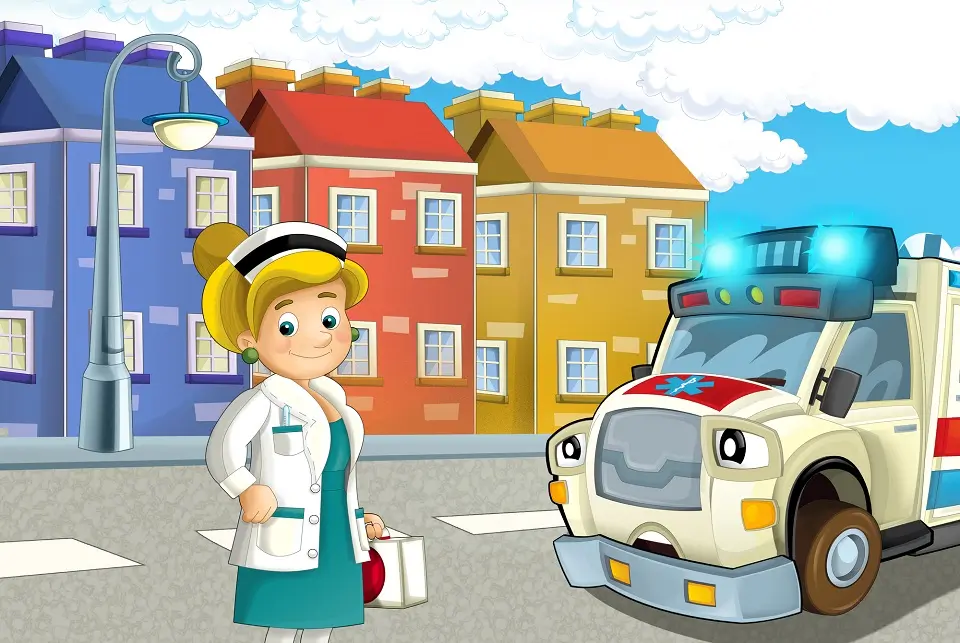
Remember that you are in Tokyo, the largest metropolitan area of a very developed country. Therefore, if you have a medical emergency and cannot speak Japanese, there is no need to panic because of the excellent Japanese healthcare system.
However, to keep your cool during a medical emergency, it’s crucial to have a planned approach and the required resources to get efficient help. So, while this guide is about English-speaking hospitals and clinics in Tokyo, let us also mention some tips to help during an emergency.
(Note: You may also like to read about our guide to visiting a doctor in Japan)
Tip #1: Keep a guide to the English-speaking hospitals ready
Medical emergencies can come suddenly, and one needs to be prepared for such unexpected times. It’s quite important to have a guide and list of Tokyo’s English-speaking hospitals and clinics ready.
As with all EJable guides to help the international community in Japan, we will also keep updating this guide to help foreigners and expats find English-speaking doctors and facilities in Tokyo. Therefore, it is a good idea to bookmark this article so you can easily find it when you need it.
Tip #2: Call the Ambulance
If you have a medical emergency, calling an ambulance to go to a hospital is the best way to proceed. The reasons are as follows:
- The ambulance will call various hospitals on your behalf and will select the best option.
- Heading to a hospital is always better than going to a small clinic because a big hospital will have more resources to help, including language support management.
This English online tool on the Tokyo Fire Department’s website is very helpful for checking whether you should call an ambulance.
Let us also mention here that the ambulance service is free of cost in Japan.
How to call an Ambulance in Tokyo?
To call an ambulance in Tokyo, you can just dial 119 free of cost from your mobile, landline, or public telephone booth.
This facility is available around the clock, 365 days, and supports many other languages apart from English.
Tip #3: Keep the Resources Handy
Any available facilities, including hospitals, change over time. What could be better than a tool that collects and publishes all information reported to it centrally? Yes, this is Himawari.
Himawari is an initiative of the Tokyo Metropolitan government that collects and publishes the data reported by medical institutions, including hospitals, clinics, dental clinics, birth centers, and pharmacies, as per Japanese laws.
You can find a desired medical facility around you based on various criteria, including the spoken language. To access Himawari, click here. You can also call them from 9:00 AM to 8:00 PM at +81(0)3-5285-8181 any day.
Another useful resource in case of sickness or accident is the AMDA Medical Information Center. This website helps you with information, online consultation, and interpretation needs during your hospital visit. In addition to English, they support various other foreign languages, such as Chinese, Korean, Vietnamese, Spanish, Thai, and Filipino.
Japanese Health Info (JHI) is another good resource that can help non-Japanese-speaking foreigners who need medical attention find and make hospital appointments. Moreover, JHI also helps to interpret when you are talking to a doctor, among other things, to assist you.
This tool for hospital searches in Japan is another great resource for finding information about hospitals in Tokyo and Japan.
Tip #4: Speak Slow, Use Hand Gestures and Writing
Always remember that communication doesn’t only depend on spoken words. Many people in Japan may not speak English or are shy about speaking English, but they can understand written words. So, be proactive during your communication with the doctors and use pen and paper to write down and show when you are talking about it.
Needless to say, hand gestures, and even facial gestures, play a very underrated role in communication, whether language is a barrier or not. Moreover, Japanese people are among those who use the fewest hand and facial gestures in the world. Japanese people refrain from making many hand gestures to maintain harmony and not to show authority.
However, in medical situations, you need to cut off from what you would otherwise do in normal circumstances. Believe me, any Japanese native would do the same.
Speak slowly, and use all possible hand gestures and facial expressions to communicate what you wish to tell the doctor.
Experiences of Expats for Medical Emergencies in Tokyo
We talked to some English-speaking Tokyo expats who faced medical emergencies or needed to visit hospitals and clinics for routine medical checkups or minor emergencies. We selected only those foreigners in Tokyo who could not speak any Japanese. Following is the summary of their experiences and tips to get English-speaking medical support in Tokyo:
- Have a list of nearby hospitals and clinics ready that can support English and other foreign languages.
- Most hospitals and clinics in Japan need prior appointments except for serious emergencies. Therefore, try not to visit them unannounced.
- Please check the hospital’s reception times if it’s not an emergency and visit them during that time.
- In most cases, hospitals consider a medical emergency if a patient arrives by ambulance. Therefore, in any medical emergency, please check if you are eligible for an ambulance and go to the hospital by it.
- Even if the hospital supports English-speaking patients, please speak slowly and clearly while talking to the doctor.
- Many doctors who do not highlight that they can speak English may have conversational English skills and can understand you if you speak slowly and clearly. Aiding your conversation with facial expressions, hand gestures, and writing during the explanation can go a long way to help you.
- Learning some health-related Japanese terms is good, especially for some common medical conditions.
- While you are hospitalized, please explain to the hospital if you have any food restrictions and cannot eat certain items.
Conclusion
To summarize, do not panic even if you speak only English. In Tokyo, the number of medical facilities and doctors who support and welcome English-speaking patients is continuously increasing. However, it also depends on the area you live in.
Areas in Tokyo with a higher concentration of foreigners have more English-speaking hospitals and clinics to support English-speaking patients. Therefore, when considering where to live in Japan, specifically in Tokyo, keep this important point as a factor in deciding.
Lastly, many times, even for serious illnesses (apart from emergencies), you may have to visit a clinic before they refer you to a hospital. In such a case, please call the clinic to check if they have any English-speaking doctors.
Please remember to emphasize that you are only looking for conversational English support, not fluency. You will be surprised that even if the clinic doesn’t offer English support, you can always find a doctor or nurse to help you with your language.
However, when you call the clinic, there is a high chance that a non-English-speaking receptionist will answer. Therefore, it’s better to ask your question in Japanese and not English. To help you with that, the following are two short sentences in Japanese that you can ask:
- “Sukoshi eigo o hanaseru kata wa imasu ka?“. This means, “Is there someone who can speak a little English?”
- “Sukoshi eigo o hanaseru ishi wa imasu ka?” This means, “Is there a doctor (ishi) who can speak a little English?”
We hope this guide to Tokyo’s English-speaking hospitals and clinics will be handy for you in any medical emergencies. We will also come up with such medical resources for other major cities in Japan.
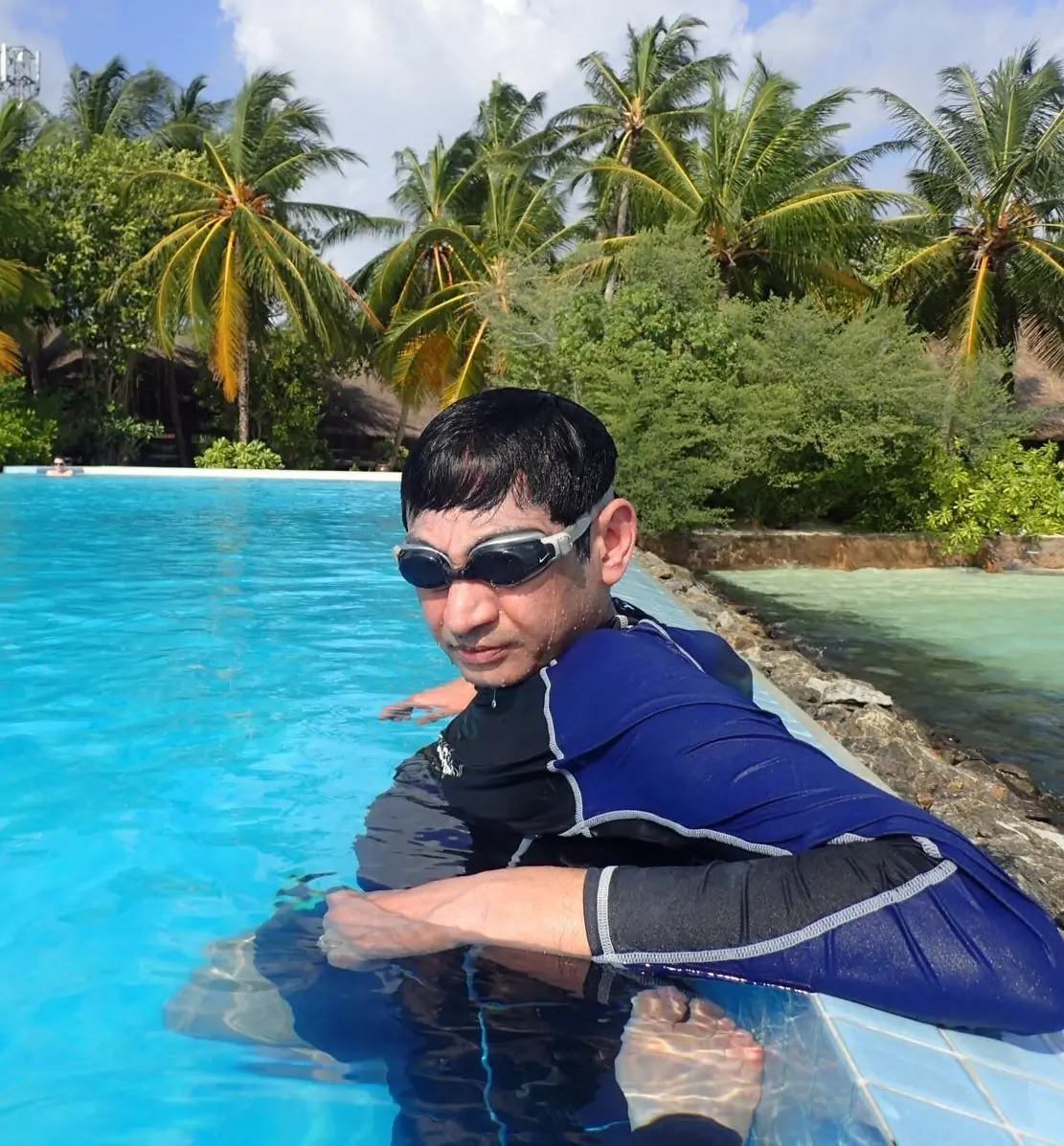
A long-term ex-pat in Japan, Himanshu comes with an IT background in SAP consulting, IT Business Development, and then running the country operations of an IT consulting multinational. Himanshu is the co-founder and Managing Director of ReachExt K.K. and EJable.com. He is also an Advisory Board Member of a Silicon Valley AI/IoT startup.
